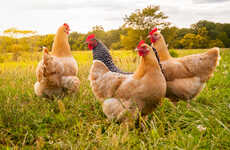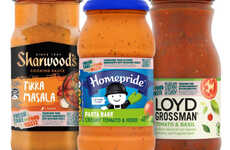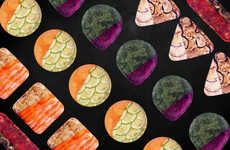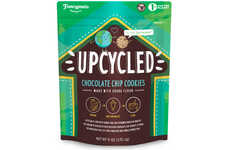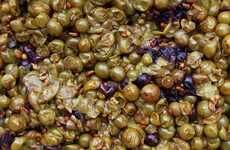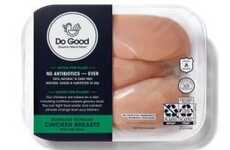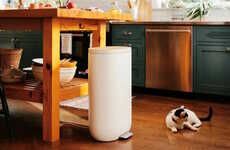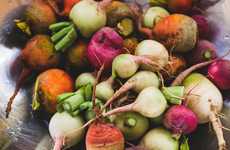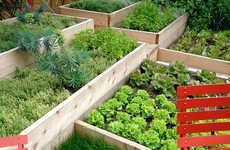
Organic Waste Uses Now Include Food Served in Restaurants Like Brothl by Joost
Alyson Wyers — October 22, 2014 — Social Good
References: byjoost & springwise
There are plenty of organic waste uses, but most people probably don't think of a restaurant menu being one of them. Based in Melbourne, this Australian soup kitchen thinks differently. Brothl by Joost is trying to redefine food waste by incorporating goods that are edible but typically considered garbage.
Brothl focuses on broths so any bacteria is boiled away. Other organic waste uses on the menu include rainwater taken from Monbulk farms, sea vegetables, stale bread and discarded animal bones. Although the items at this restaurant are not as fresh as others, the ingredients are obtained from quality sources. The bones and carcasses, for example, come from an award-winning restaurant (Rockpool).
Brothl's approach is influenced by the research performed by Weston Price in the 1930s. It also helps cut down food that would otherwise end up in landfills.
Brothl focuses on broths so any bacteria is boiled away. Other organic waste uses on the menu include rainwater taken from Monbulk farms, sea vegetables, stale bread and discarded animal bones. Although the items at this restaurant are not as fresh as others, the ingredients are obtained from quality sources. The bones and carcasses, for example, come from an award-winning restaurant (Rockpool).
Brothl's approach is influenced by the research performed by Weston Price in the 1930s. It also helps cut down food that would otherwise end up in landfills.
Trend Themes
1. Organic Waste Uses - Innovative restaurants like Brothl by Joost are incorporating edible but typically considered garbage items into their menus, redefining food waste and promoting sustainability.
2. Boiling Away Bacteria - Restaurants focusing on broths, like Brothl, are using boiling as a method to eliminate bacteria from organic waste ingredients, ensuring safety and reducing waste.
3. Sourcing Quality Ingredients - Brothl by Joost obtains organic waste ingredients from quality sources, such as an award-winning restaurant, to ensure the taste and integrity of their dishes.
Industry Implications
1. Sustainable Restaurants - The rise of sustainable restaurants like Brothl by Joost presents disruptive innovation opportunities for the food industry to reduce waste and embrace eco-friendly practices.
2. Waste Management - The incorporation of edible organic waste into restaurant menus highlights the potential for disruptive innovation in the waste management industry to reduce landfill and promote recycling.
3. Alternative Food Sourcing - The use of organic waste items in menus by restaurants like Brothl creates opportunities for disruptive innovation in the food sourcing industry, encouraging the repurposing of discarded ingredients.
5
Score
Popularity
Activity
Freshness


